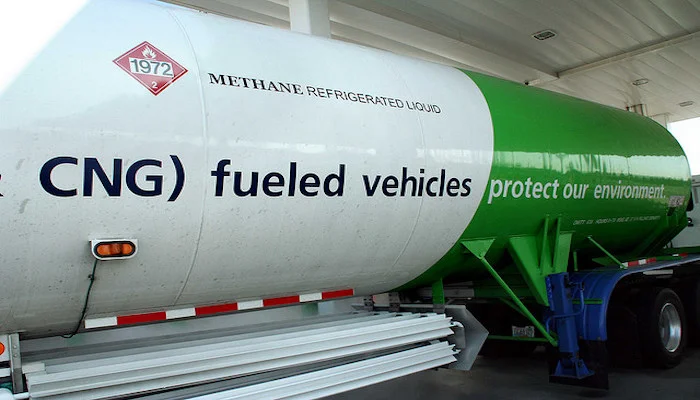In June 2023, PricewaterhouseCoopers Limited (PwC) released a report on Nigeria’s fuel subsidies, advocating a long-term approach to adopting Compressed Natural Gas (CNG) as an alternative to petrol.
With Nigeria’s 208.62 trillion cubic feet of natural gas reserves, CNG offers lower costs, reduced emissions, and improved fuel efficiency, but PwC cautioned that significant barriers make it an unlikely short- to medium-term solution.
Benefits of CNG
The PwC report highlighted CNG’s advantages: “CNG costs less than petrol, offering substantial savings for vehicle owners due to its stable pricing,” it stated. Its cleaner-burning properties reduce engine deposits, lowering maintenance costs. CNG emits 70% less greenhouse gas than petrol or diesel, aligning with Nigeria’s net-zero emissions goal by 2060, per Dubawa.
Safer due to its high ignition temperature and quick dispersion, CNG suits Nigeria’s transport sector, per Axxela.
IPMAN’s Push for CNG
In April 2023, the Independent Petroleum Marketers Association of Nigeria (IPMAN) partnered with Gas Analytics & Solutions Limited to co-locate CNG dispensers at over 30,000 filling stations.
IPMAN urged the Central Bank of Nigeria to release the N250 billion Gas Expansion Fund to finance vehicle conversion kits for cars, tricycles, and trucks.
This followed the 2020 National Gas Expansion Programme (NGEP), launched by the Buhari administration to promote CNG in transport, per the provided story.
Implementation Challenges
PwC identified key obstacles to CNG adoption:
- High Conversion Costs: Retrofitting vehicles costs N700,000 to N1.8 million (USD 452–1,162), unaffordable for many, per Global Voices.
- Limited Infrastructure: Only 30 CNG stations exist, mostly in Lagos, Abuja, and Port Harcourt, per the Nigerian Gas Association.
- Policy Gaps: Lack of incentives and regulatory frameworks hinders adoption, PwC noted. Low public awareness further slows progress, per LightRay Media.
Government Initiatives
The Presidential CNG Initiative (Pi-CNG), launched in 2023 by President Tinubu, aims to convert 1 million vehicles by 2027, with $200 million invested, per AP News. The Nigerian National Petroleum Company Limited (NNPCL) plans to cut conversion costs by 50% and build 175 new stations by mid-2026.
Partnerships with NIPCO Gas and Axxela aim to expand infrastructure, with 131 conversion centers across 24 states by Q1 2023, per Mondaq.
Expert and Industry Views
Stakeholders at the 2023 Equipment and Manufacturing West Africa conference urged prioritizing CNG to boost Nigeria’s economy, per the previous artifact. MAN’s Segun Ajayi-Kadir emphasized CNG’s role in reducing fuel import reliance, which cost Nigeria $95 billion in 2023, per Energy for Growth Hub. However, PwC warned that without addressing infrastructure and cost barriers, CNG’s potential remains long-term.
Path Forward
To accelerate CNG adoption, PwC recommended subsidies for conversion kits, tax breaks, and public awareness campaigns.
Expanding refueling stations beyond urban centers and training technicians, as noted by Pi-CNG’s Michael Oluwagbemi, are critical. Nigeria’s vast gas reserves position it to become a gas powerhouse, but coordinated policies are essential, per Policy Center.






